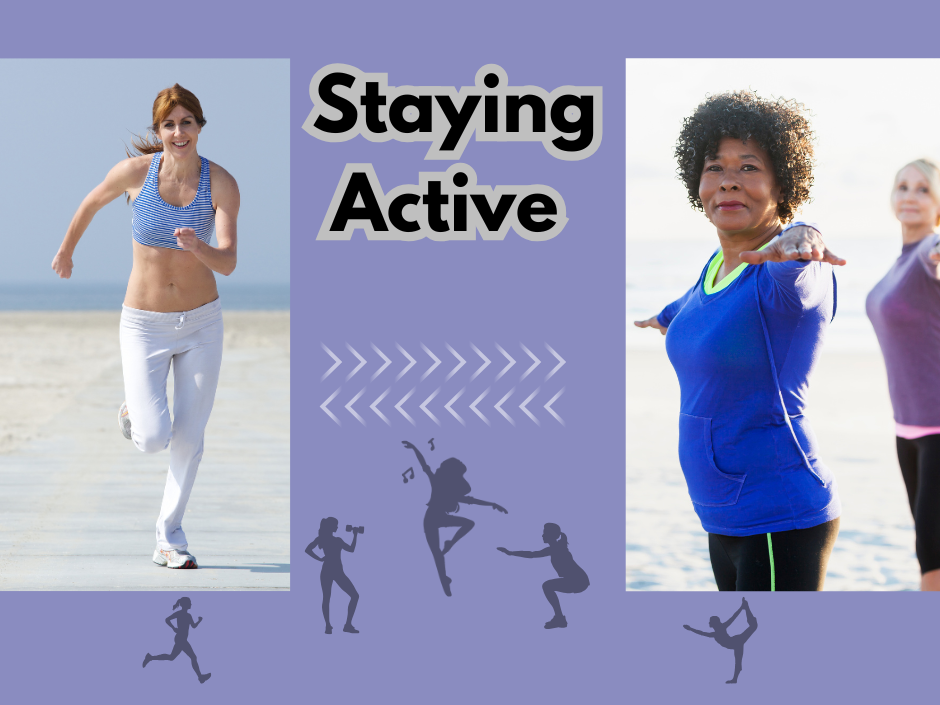Strong at 40+:
- Emoke
- Jan 11, 2024
- 4 min read
Unleashing the Power of Strength Training for Women
In the whirlwind world of a woman in her 40s, and beyond finding time to exercise can feel like trying to squeeze a yoga session into a phone booth – cramped and nearly impossible!
Picture this: she's a multi-tasking ninja, flipping pancakes with one hand, checking emails with the other, all while mentally planning her teenager's birthday party and wondering if her parents need anything. Just when she thinks she can sneak in a quick workout, life throws a curveball - a work crisis, a science project due tomorrow, or a pet that decides to eat something weird.
And let's not forget the mysterious case of disappearing energy – one minute she's ready to conquer the world, the next she's wondering if napping is an Olympic sport. It's not that she doesn't want to exercise; it's just that by the time she's done being the CEO of Everything Else, the couch whispers sweet nothings, and who can blame her for listening?
So, when it comes to finding time for fitness, our 40-something wonder woman isn't just battling the clock; she's up against a whole sitcom's worth of life's quirky plot twists!
But She needs to find time for exercise. Otherwise things won't look too pretty down the line.
Why? Well just read the list below:
Lack of exercise can have several significant impacts on the health of women in their 40s and beyond. Here are some key areas where the effects can be particularly noticeable:
Weight Gain: Physical inactivity can lead to an increased risk of weight gain. As metabolism naturally slows with age, exercise becomes increasingly important to maintain a healthy weight.
Increased Risk of Chronic Diseases: Lack of exercise is associated with a higher risk of developing chronic diseases such as type 2 diabetes, cardiovascular diseases, and certain types of cancer.
Bone Density Reduction: Women are at a higher risk of osteoporosis, especially post-menopause. Regular weight-bearing exercises help in maintaining bone density.
Muscle Loss and Decreased Strength: As women age, they naturally lose muscle mass and strength. Exercise, particularly resistance training, can slow down this process.
Mental Health Issues: Physical activity has been shown to reduce the risk of depression and anxiety. It also improves mood and overall mental wellbeing.
Cardiovascular Health: Regular exercise helps in maintaining heart health and reducing the risk of hypertension and stroke.
Reduced Flexibility and Mobility: Without regular exercise, the muscles and joints can become stiff and less flexible, leading to reduced mobility and balance, which increases the risk of falls and injuries.
Sleep Disturbances: Regular physical activity can improve the quality of sleep, which often becomes an issue as women age.
Decreased Immune Function: Exercise has been shown to boost the immune system, which becomes more important as the body's natural defenses weaken with age.
Impaired Cognitive Function: There is evidence suggesting that regular physical activity can slow cognitive decline and may reduce the risk of dementia.
I hope this is enough to convince anyone how had doubts about the impact of not moving her body enough or at all. The cost is too high even when you can not see, or feel it yet.
So lets do something about it!
Start with strength training
Strength training is an empowering and essential practice for women over 40, offering numerous benefits that enhance both physical and mental well-being. As women age, they naturally lose muscle mass and bone density, but strength training can significantly counteract these effects.
Take, for instance, the story of 45-year-old Sarah, who incorporated strength training into her routine twice a week. Within months, she noticed improved muscle tone, higher energy levels, and better balance. Another example is Lisa, a 50-year-old who began strength training and experienced a reduction in joint pain and an increase in bone density, as confirmed by her doctor.
Key exercises that are beneficial include:
Squats: They strengthen the lower body and core, crucial for daily activities and maintaining balance.
Deadlifts: These work on multiple muscle groups, including the back, glutes, and hamstrings, improving posture and functional strength.
Bench Press: This exercise enhances upper body strength, vital for tasks ranging from lifting groceries to pushing a heavy door.
Strength training not only combats the physical challenges of aging but also boosts mental health by improving mood and cognitive function. Regular participation in such activities leads to a significant decrease in the risk of osteoporosis and chronic diseases like diabetes and heart disease.
Staying physically active after the age of 40 is crucial for maintaining overall health and wellbeing. It's important for women in this age group to find an exercise regimen that works for them and to incorporate it into their daily lives.
In conclusion, strength training after 40 is not just about maintaining muscle mass; it's about embracing a lifestyle that fosters overall health, independence, and confidence. By joining my community you can achieve what Sara and Lisa did.
Feeling drained and struggling to fit exercise into your day? Let's work together! I'm confident we can find ways to boost your energy, improve your mood, and take your health to the next level.
Contact me if you questions : info@fitwithemoke.com






Comments